Interview: Jenn D’Eugenio, Author of The Art of Making Vinyl
By Julia Girdharry
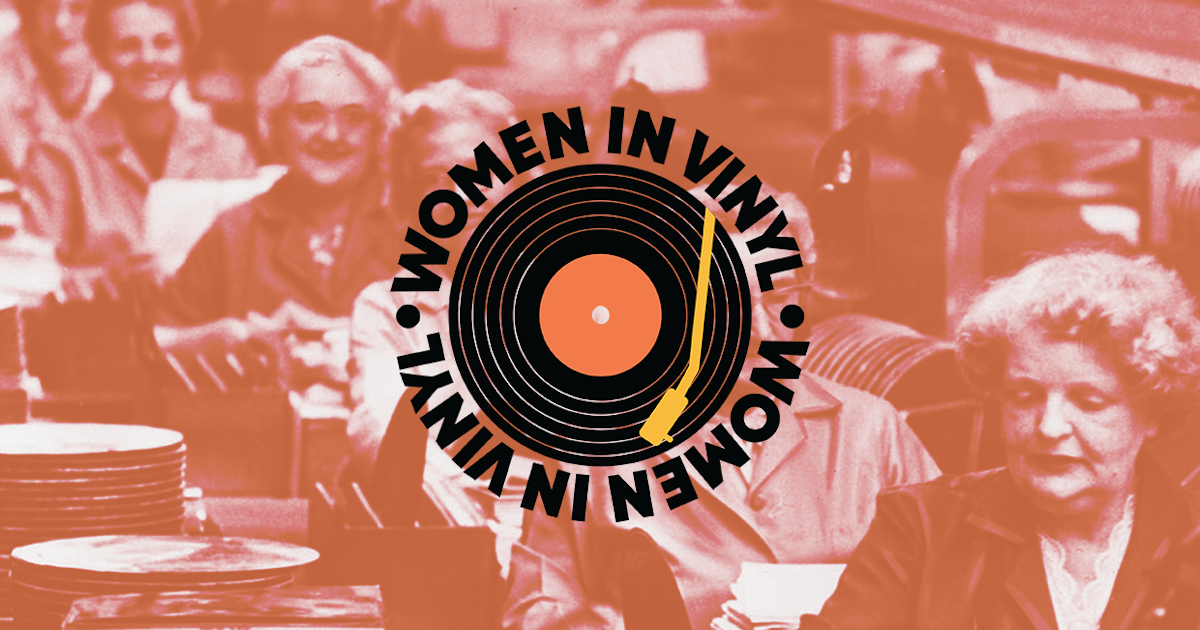
Since our last conversation with Jenn D’Eugenio in 2020, the Women in Vinyl website has gained significant attention, addressing diversity issues and providing valuable insights into the vinyl production process.
This time, Jenn discusses her recent project, Women in Vinyl: The Art of Making Vinyl, among many others. This book aligns with the overarching mission of the Women in Vinyl organization, which strives to educate everyone from novice record collectors to seasoned professionals in the vinyl industry.
What stands out is the book’s inclusion of personal stories from several women who either stumbled into the field or pursued a lifelong dream to work in the vinyl record business. These narratives not only offer a platform for these women to share their experiences but also highlight achievable career goals for future generations, including female, BIPOC, and non-binary lathe cutters, salespeople, plant owners, and more.
Scroll down to read the full interview.
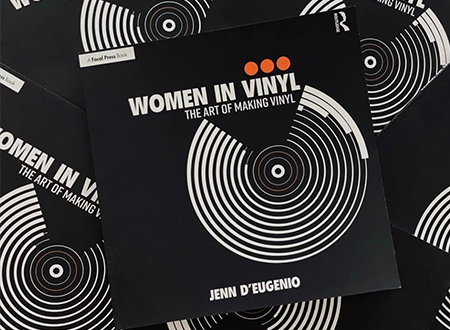
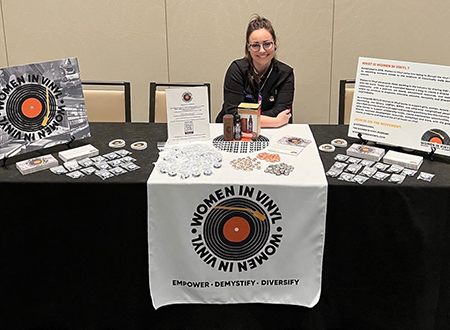
Julia: What are your top summer releases in your rotation this year?
Jenn: Honestly, I haven’t bought much this summer. I am at a point in my collecting journey where I’m going back and buying a lot of stuff from the 90s that is being reissued that I never had on vinyl. Uncle Acid and the Deadbeats are a stoner rock band that I love, and they just put out a new record NELL’ ORA BLU. That has been in rotation for sure.
Julia: What is your favorite part about being in the vinyl community?
Jenn: From a work perspective or the vinyl community online generally?
Julia: Which is more present these days?
Jenn: I’ve been more in the work world lately. I think, in that aspect, collecting records and understanding how to help my clients get their music onto vinyl is exciting. That never gets old, even though I don’t get to listen to everybody’s records. It’s impossible to listen to every record that crosses your desk, but it’s exciting to still help in that way.
Julia: I think each of the profiles is validating and relatable. I thought everyone would have this grandiose story about how they got into vinyl, but many people stumbled into it. They were collectors first, saw a job, and went for it. Now they’re in a book.
Jenn: That’s honestly the biggest trend that I see. Almost all women who have found their way into this industry did so by accident.
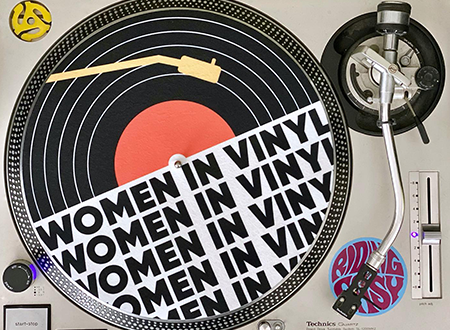
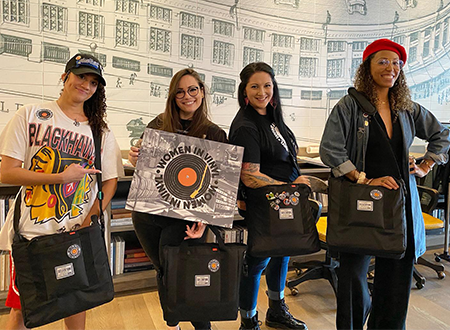
Julia: Could you talk a bit about the theme and the unique structure?
Jenn: We were approached by Routledge, Taylor & Francis, the publisher, to write a book. It wasn’t something that I had planned to do, although, as a kid, I always wanted to have a book in the library.
The big thing for me is education. I wanted to showcase that by finding women all over the world who are doing these jobs. It was crazy because even with the blog featuring a woman every week, trying to find people specifically doing those jobs who are female or female-identifying was almost impossible in some cases.
We couldn’t find a person of color who was electroplating, for example, two of the women in the book electroplating are in the UK. It was really interesting to see how much work still needed to be done. I have a background in higher education, so I love teaching. I think that there’s a lot of that to be done within our industry, not just for new people, but also for people who have been in the industry for 20 years that may not have worked in vinyl at that time. Maybe it was CDs. How would they learn about this process? I wanted the book to follow the steps of how a record is made. Each part of the process in the order in which it happens.
Julia: Was storytelling always a passion of yours or did it start with this book?
Jenn: As a kid, I always wrote stories and things like that. I wouldn’t say that was the factor. When I started Women in Vinyl, it was just about showcasing women doing these jobs that I had no idea existed. Back then, Women in Vinyl was just a blog of interviews. Since then, it has expanded from a blog to a podcast, community, a membership, scholarship programs and various resources online.
I think it was more from a place where I wanted to showcase these jobs and the women doing them. My whole career trajectory could have been completely different had I known about them earlier. I want other women and girls to know that these are career paths that you can get into and that these women are working behind the scenes to do it because so much of what the collector culture knows is not women at the forefront of those jobs.
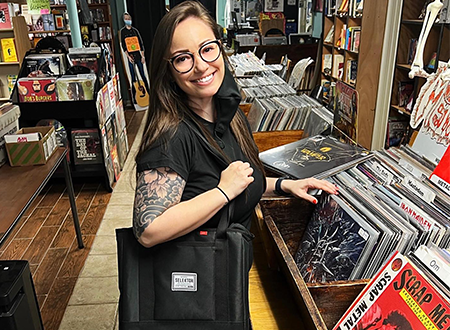
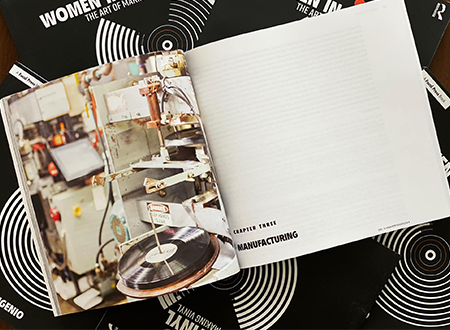
Julia: How did you envision it being used by readers?
Jenn: I wanted the book to be a tool that I could take into a classroom setting, for example. The goal was to provide a starting point in the learning journey for individuals interested in records.
With that, showing how these people found their way here. I didn’t want to get too into the weeds with all of the technicalities, so I tried to keep it where it was understandable for anyone as a 101.
Julia: I think it’s interesting, as you mentioned, it’s meant to be a tool. I listened to one of your podcasts, and there was an episode about teaching vinyl in classes. If that had been an option for me, you bet I would’ve taken it and I’d be in a different place. I don’t come from a STEM background; it’s always been design and marketing.
Jenn: I also came from a design background. That’s always what I knew. I always loved music, but I didn’t know where my place was for it. I went to design school, worked in design, and then moved into higher education. So, working in this industry is kind of a perfect mix of all of those things. I think that Women in Vinyl allows for a place to merge all of those past career paths.
Julia: What are some of the initial challenges that you came across when you were developing the book?
Jenn: It was a huge undertaking because we wanted to represent everybody correctly. We wanted a lot of diversity because it’s important to me that we show all types of people all over the world. I don’t want anybody to look at the book and say, “I still don’t see myself” in an organization that’s fighting for change and diversity.
I didn’t want certain jobs to feel centered around certain regions or demographics. For example, showing that you could only be a DJ or only own a record store. To me, I think the biggest struggle is that I want people to see themselves at every stage of the process. At the same time, we don’t know everybody. We did our best to try to network and find those people.
Julia: Did anything surprise you along the way, whether it was a personal experience or a technical detail?
Jenn: Because of how long I’ve been doing the features, there wasn’t anything in the book from an interview perspective that surprised me other than just really not being able to find that diversity. Truly, that was it. The through line of surprises for me is just how many people truly find their way here by accident. I think that’s part of why Women in Vinyl has grown and become such a great community. It’s something that we’ve needed; a place where people feel comfortable sharing and asking questions without feeling a barrier of entry.
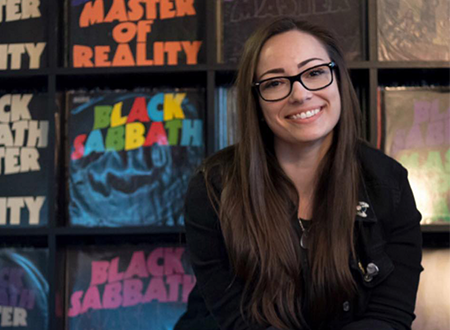
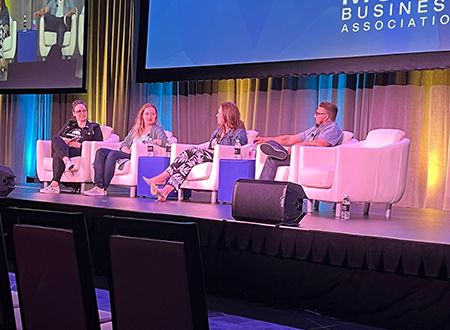
Julia: What’s the through line between what you do on social, the podcast, and online?
Jenn: At the core of everything, I think I’m always bringing it back to how can we educate. I want to be in a classroom, I want to be getting into those mastering classes and telling people about these cool jobs that exist. Because if we don’t, how would a pressing plant stay alive? How does the next generation learn to cut if there’s nowhere to learn that? I think those are the most important things. Part of what I’m trying to do, at least locally is to try to get into some of those music programs, and influence what can we do as a continuation of your music mastering program. Could you buy a lathe, and teach people to cut? There aren’t many apprentice programs or anything like that. A lot of the funding that we receive goes towards those things.
Julia: Do you ever encounter challenges in sharing some of these stories publicly? Are there reservations or hesitations from those you’ve interviewed, especially given the presence of an anonymous section?
Jenn: The part of the reason initially, why we started with blog posting was because people could say things in their own words. Still to this day, I send them a form, and they fill that out and send me photos I curate everything together for each post.
What I found was that on the podcast, we would interview people or talk to people. Later, they would say, you know, can I listen to this? Or could you cut this out? Or I’m concerned about this thing I said. I understand from that perspective if something has happened to me, I maybe don’t want to broadcast it, especially because of how small the industry is. But, I also want to make sure people know that there’s a systematic issue going on. That’s why I created Anonymous Stories.
Back in the day, there were these publications where you could send in a letter to an anonymous place and they’d publish them. I kind of took that idea and ran with it for the anonymous stories. And so, when we get those stories, I try to share them, both wins and struggles, because sometimes people just want to show they did something cool and I just want to tell people about it.
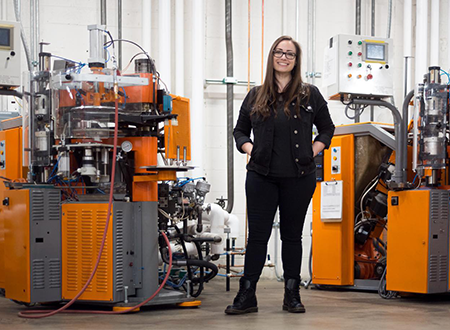
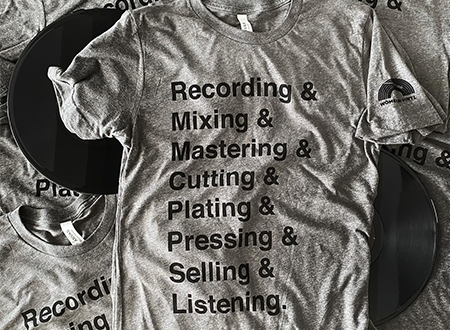
Jenn: Not another book in the immediate future, but we are still trying to expand. While we have some representation overseas, I do think that that’s somewhere where we’re trying to push. We are working on trying to create some street teams and some mentorship programs, so that is a little easier to tackle some of the bigger initiative that we have. We have the info sessions that are running now through November, which talk about how people follow the book to get that one-on-one information from people that are doing these jobs. I think continuing along those lines, and then getting into the classroom is our focus for the near future.
Julia: What would you say is your main takeaway from the experience?
Jenn: We have a lot of work to still do. The vinyl industry, as a whole, is in a place right now where there’s a lot of room for growth. We’ve already grown so much and now it’s time to do more work on the other side so that we can continue to thrive. Can we get another lacquer manufacturer? Can we find a more environmentally conscious way to electroplate? To do that, we have to innovate, and we have to diversify because those different opinions are what’s going to get us there. If we keep just doing the same thing, the same people, we’re not going to get those ideas and pass forward. I think overall, that’s what keeps me going.
Even if I’m just over here in my corner, chugging along as hard as I can, I’m going to keep doing that.
For more information about Women In Vinyl, please visit womeninvinyl.com.